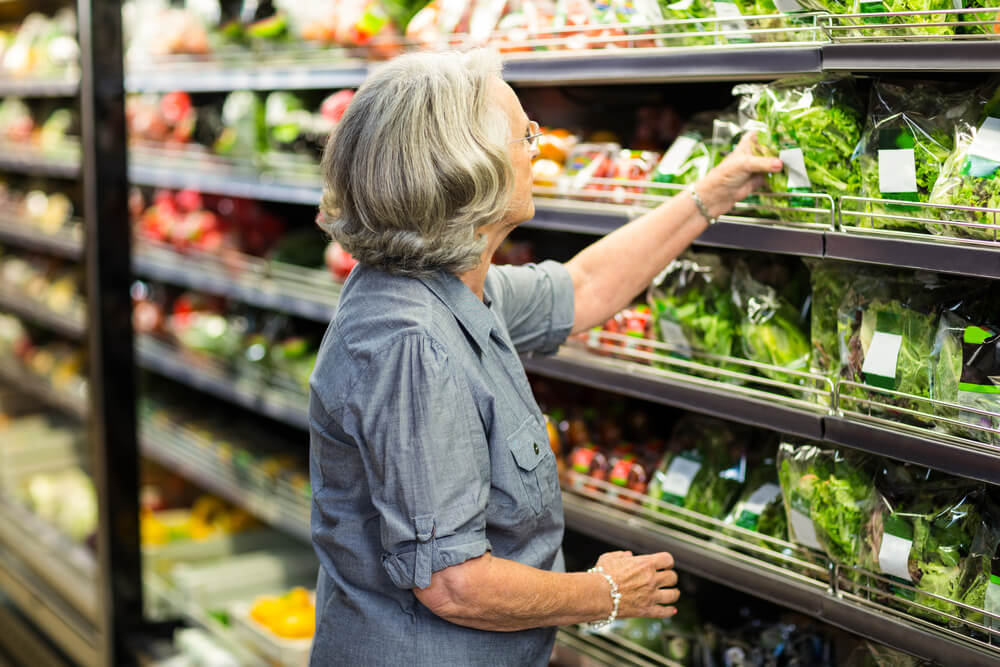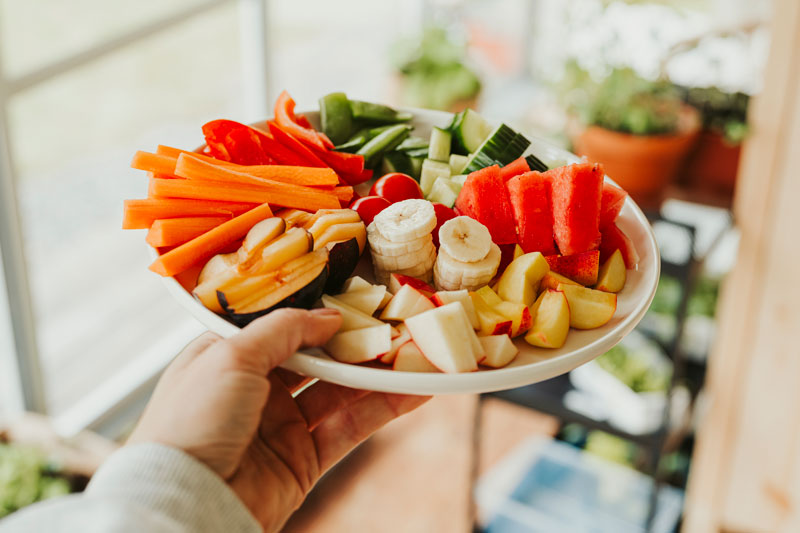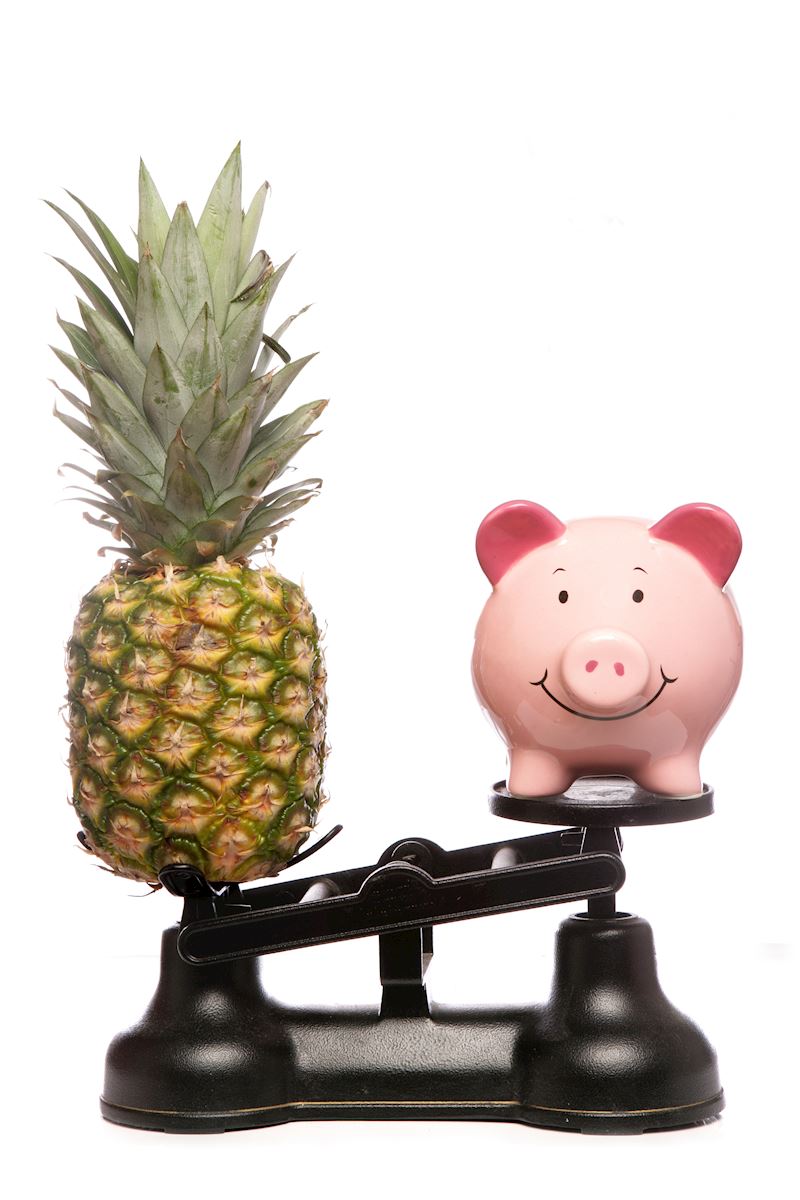Good nutrition is the foundation for a healthy life at any age. But, just as our bodies change and grow throughout life, the amounts and types of nutrients we need change too. In many cases we need to “trade up” on our dietary choices to keep our bodies in optimal shape for our golden years.
Try these trade ups and tips to improve your nutrition as you age
Correct your calories
It’s natural for activity levels to decrease with age due to lower energy levels and mobility issues. At the same time, metabolism slows, and loss of bone and muscle mass increase. Those all contribute to lower caloric needs for most older Americans.
According to the National Institute on Aging, women aged 50 and over need between 1,600-2,200 calories a day depending on their activity level. Those who have the most active lifestyles need more calories. Men over age 50 need 2,000-2,800 calories based on their activity level.
Trade ups and tips:
- Choose low-calorie, high-fiber fruits and vegetables as snacks instead of high-calorie, packaged foods
- Keep tabs on your calorie intake by writing down what you eat or using a digital tracker
- Reduce your intake of sugary, high-calorie beverages
Focus on nutrients
It might sound like a paradox that older adults need more nutrients but fewer calories, but it’s true. As we age, our ability to consume and absorb nutrients from food diminishes, making the nutritional quality of the calories we eat even more important.
Some medications impair the body’s ability to absorb nutrients in food. Compounding the absorption problem is that the aging body produces less stomach acid, which is critical for breaking down nutrients like Vitamin B-12 and calcium in the foods we eat so the body can absorb them.
Some seniors face challenges eating enough nutrients because of physical limitations. Aging can cause oral health issues like swallowing problems, pain due to tooth decay or gum disease, and tooth loss that make it hard to chew and swallow. Decreased mobility is another common concern that can limit one’s ability to prepare meals and shop for healthy foods.
Trade ups and tips:
- Focus on filling your plate with high-quality, nutrient-dense foods and avoiding processed products that tend to be high in sodium, saturated fat, and sugar
- Talk with your doctor about whether taking dietary supplements is the right way for you to boost your intake of vitamins and minerals
- Visit your dentist regularly to maintain good oral health and address minor issues before they become big problems
Drink more water
Our ability to sense dehydration decreases with age. Why? Researchers are still unraveling that mystery. But we know that proper hydration keeps our organs functioning properly; dehydration can cause the heart and kidneys to work harder and can contribute to brain fog and even anxiety. Because natural signs of dehydration like dry mouth and thirst may not be as evident as we age, a proactive approach to daily hydration can help.
Trade ups and tips:
- Choose sparkling water or flavored water instead of sweetened teas and sodas
- Keep a bottle of water with you and sip throughout the day
- Log your water intake by jotting down how much you drink or using an online water tracker
- Reduce the number of caffeinated beverages you drink — they can promote dehydration
Eat more protein
Many seniors don’t consume enough protein. Protein is our body’s building block and eating enough protein each day helps prevent the loss of lean muscle which accelerates as we age. Healthy sources of protein — lean meats, eggs, and dairy — also contain key nutrients such as vitamin B12, vitamin D, fiber, and calcium that are especially important for seniors. How much protein you need depends on several factors including your body weight, activity level, and overall health so talk with your doctor about how much protein you need.
Trade ups and tips:
- Try protein-rich plant-based foods including beans, lentils, tofu, and hummus
- Add seafood including salmon and trout into your weekly meal plan for a great source of protein and omega-3 fatty acids
- Remember that legumes like kidney beans, garbanzo beans, and black beans have protein in them
Mom’s Meals® can help
Our convenient home-delivered meals are a great option for older individuals. They’re ready-to-heat-and-eat, nutritionally balanced, medically tailored and delicious. Explore our 60+ meal choices.



